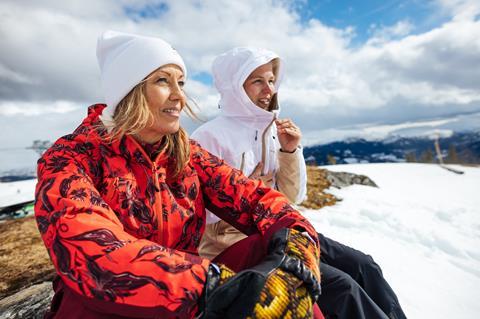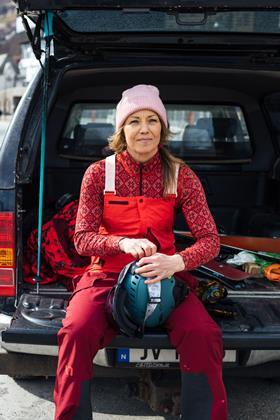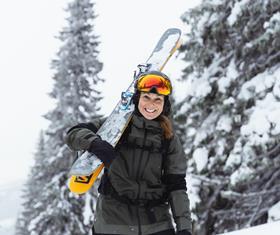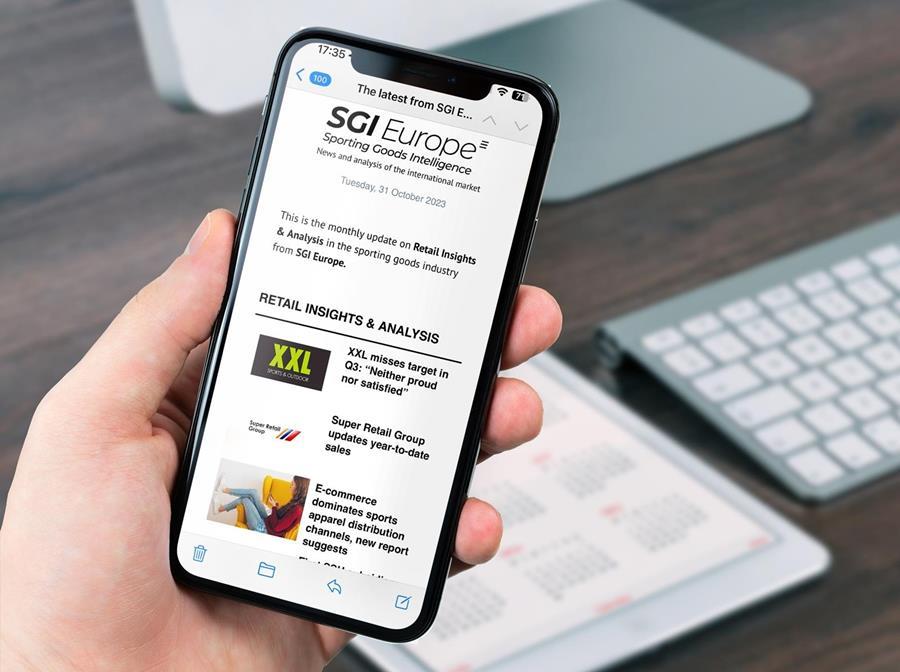Georgina Kirby, General Manager at Norwegian company Kari Traa, shares insights on empowering women, fostering community and promoting gender equality in the outdoor industry while shedding light on the significance of International Women’s Day and Kari Traa’s commitment to inclusivity and authenticity. From organizing community events like Girl Shred to creating an inclusive workplace culture, Kari Traa continues to challenge the status quo, emphasizing empowerment over exclusivity and building a brand that resonates with women on a personal level. Kirby highlights the importance of authenticity, community and flexibility in navigating the challenges and successes of Kari Traa’s business model, offering valuable lessons for brands aiming to attract and empower women in the sports and outdoor space.

SGI Europe: Today is International Women’s Day. Does this day have any significance for you?
Georgina Kirby, GM at Kari Traa: At Kari Traa, it has a big meaning. On International Women’s Day, we sponsor an event called Girl Shred, which takes place in Voss, our hometown, where Kari is from and where our brand was founded. This event is representative of what we want to achieve at Kari Traa: empowering women, bringing women together in communities and increasing self-confidence in the outdoors.
In the Nordic countries, there are various outdoor sports groups of women, and they all come together for this event. In Voss, we take over the [snow] park and build a series of jumps and rails that are a bit easier to conquer. It’s all women and girls all day long. So there aren’t these scary kids intimidating others. It’s an opportunity for women and girls to try something they might otherwise be afraid of. For us, Women’s Day is a poignant reminder of the progress we’ve made in promoting women in sports and outdoor activities. And this event epitomizes just that for us.
Challenges and successes of Kari Traa’s business model
Is this the first time you’ve organized this event?
No. We’ve done it several times, and we get very positive feedback every time. It’s just a nice community event. Our ambassadors are there, and Kari herself is always there, too. It’s a very nice environment.
Communication strategies tailored for women
Kari Traa is a brand by women for women. Do you have 100 percent women working for you?
We are part of Active Brands. And as a group, we buck the trend that sports and outdoor is still male because 70 percent of us in this group are women. But the team that works exclusively on Kari Traa is 95 percent women. We were 100 percent women, but a few weeks ago, a great man joined us to take care of our product merchandising.
So men also have a chance to join your team…?
Absolutely. When Kari founded the brand, she did it to challenge the establishment. It was never about excluding men. We want to celebrate femininity, community and obsession with the outdoors. That’s what defines us as a brand, and we realize that women find this approach attractive. But some men are attracted to it and want to be part of it, too.
Why is it important that Kari Traa is predominantly made by women?
We think it’s particularly important in terms of design because we develop clothing that is tailored to and made for the female body. I think it was Kari who started this approach and built the company on a really strong foundation of women and community. The sense of community that we have as a predominantly female group is really special. Perhaps it was also easier to realize because we are a Nordic company. I think equality is very strongly anchored in society here.
Balancing work and family: Insights from Kari Traa
What else makes Kari Traa different from other brands that also want to attract women?
Well, I think we emphasize authenticity and develop products and brand messages that resonate with women on a personal level. I don’t think we do anything overtly different when it comes to running the business. We still have big goals, and we hold each other accountable, but it’s more gentle. It’s more about empowerment than power.
Gender equality in Norway and its impact

Do you have an example? What is it that makes your work different?
For example, we had to make a big budget cut at the last minute before a sales meeting. So we got our whole team together, right down to customer care, and said: “OK, what do we think could help everyone in this room feel part of what we’re trying to achieve?” We got together and even ended up doing a line dance. And then we just put on some music and used the team as models – in all shapes and sizes – and presented the products in a really fun way. We put the products on and just went out on the catwalk and celebrated.
***
Check out more of these interviews and also data about equality and diversity on our dedicated landing page.


























